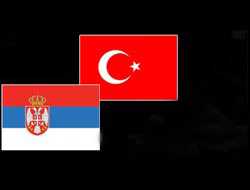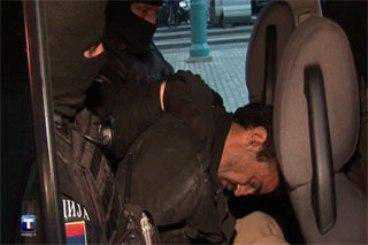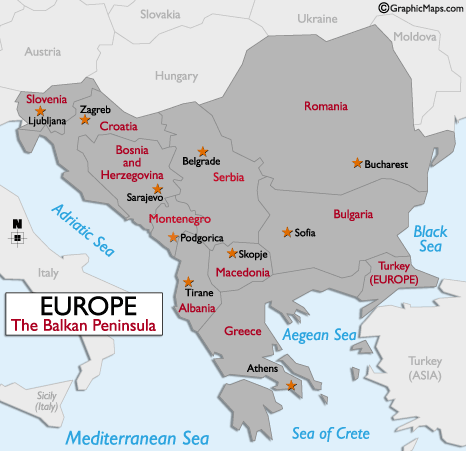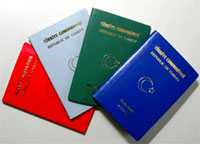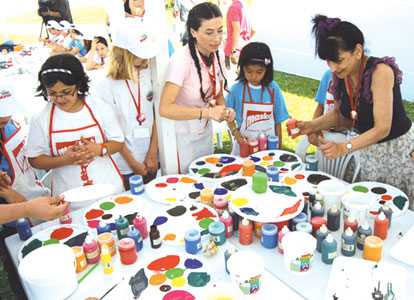By Justyna Pawlak
BRUSSELS | Wed Oct 12, 2011 2:48pm EDT

(Reuters) – The European Commission recommended on Wednesday that Serbia become a candidate to join the European Union as a reward for democratic reforms and the capture of war crimes fugitives, but expressed concern that Turkey’s membership drive had stalled.
In its annual report on countries lining up to join the EU, the EU executive said Serbia’s new status was conditional on it resuming talks on practical cooperation with its former breakaway province Kosovo. The talks broke down in September.
“I recommend granting Serbia candidate status on the understanding that Serbia re-engages in the dialogue with Kosovo and is moving swiftly to the implementation in good faith of agreements reached to date,” EU Enlargement Commissioner Stefan Fuele said in a speech in Brussels.
In another positive signal for the western Balkans, where years of bloody conflict has delayed democratic transformation, the EU executive also recommended on Wednesday the bloc starts entry talks with tiny ex-Yugoslav state Montenegro, in recognition of its efforts to combat organized crime.
Serbia has satisfied one of the main demands of the European Union for membership by catching fugitives wanted for crimes during the Balkan wars of the 1990s, including Ratko Mladic the former Bosnian Serb military commander who was on the run for 16 years until he was caught in May this year.
But its relations with Kosovo remain a sticking point. Belgrade lost control over Kosovo in 1999, when a NATO bombing campaign halted a Serb counter-insurgency war against ethnic Albanian rebels. With Western backing, Pristina declared independence in 2008, a move Serbia refuses to recognize.
Tensions have worsened in recent weeks over border and trade disputes that led to clashes in which one policeman died and dozens of NATO peacekeepers and Serb protesters were injured.
EU envoys have pushed the two sides this week to resume talks but no date for a new round was set, diplomats said.
Relations with Serbia and Kosovo are also a divisive issue in the EU, where five EU members refuse to recognize Pristina’s independence.
Some EU capitals, led by EU powerbroker Germany, say Serbia needs to do more to earn EU approval and will be reluctant to approve the Commission’s recommendation if talks between the two do not resume. Others worry about leaving Kosovo behind.
In a nod to Kosovo’s supporters, the Commission said it would speed up work on lifting visa restrictions for Kosovars.
The Serb government welcomed the Commission’s decision on its status and said democratic reforms would continue.
“Of course, this is not the end. We must continue with implementation and reforms, but this is a very significant day for Serbia,” Prime Minister Mirko Cvetkovic said in Belgrade.
JUGGLING TURKEY
In the same report, the Commission criticized Turkey, the largest of EU candidates, for not doing enough to normalize relations with EU member Cyprus. In a reference to a recent spat over gas drilling rights in the eastern Mediterranean, it told Ankara to avoid threats that could further damage ties.
Fuele said both Brussels and Ankara were frustrated by the lack of progress in Turkey’s EU accession, which is caused in part by opposition from Cyprus as well as by French and German reluctance to admit the largely Muslim state.
“Regrettably, accession negotiations have not moved forward for more than one year. There are frustrations about this on both sides,” he said, adding that the EU should work out ways to keep Ankara engaged.
“These (frustrations) should not blind us from the importance of our relationship, or the underlying fundamentals, which remain good. I believe it is time to work for a renewed positive agenda in EU-Turkey relations.”
European policymakers are concerned about losing influence with Turkey at a time when Ankara’s clout is rising in the Middle East and North Africa, where popular revolts this year have created uncertainty over future alliances.
Turkey also oversees important energy corridors from Asia to Europe, and wields significant influence over whether illegal migrants from Africa can reach Europe.
Addressing overall ambivalence toward enlargement that has spread through large parts of Europe, the Commission said the pace of talks will be increasingly dependent on progress of democratic reforms and efforts to curb corruption and support freedom of expressions in candidate states.
The EU sees serious efforts to combat graft and crime, which are rife in the western Balkans, a region of more than 20 million people, as a vital part of their EU preparations.
(Additional reporting by Matt Robinson in Belgrade; Reporting by Justyna Pawlak; editing by Rex Merrifield)
via Serbia wins qualified EU invite, Turkey criticized | Reuters.

